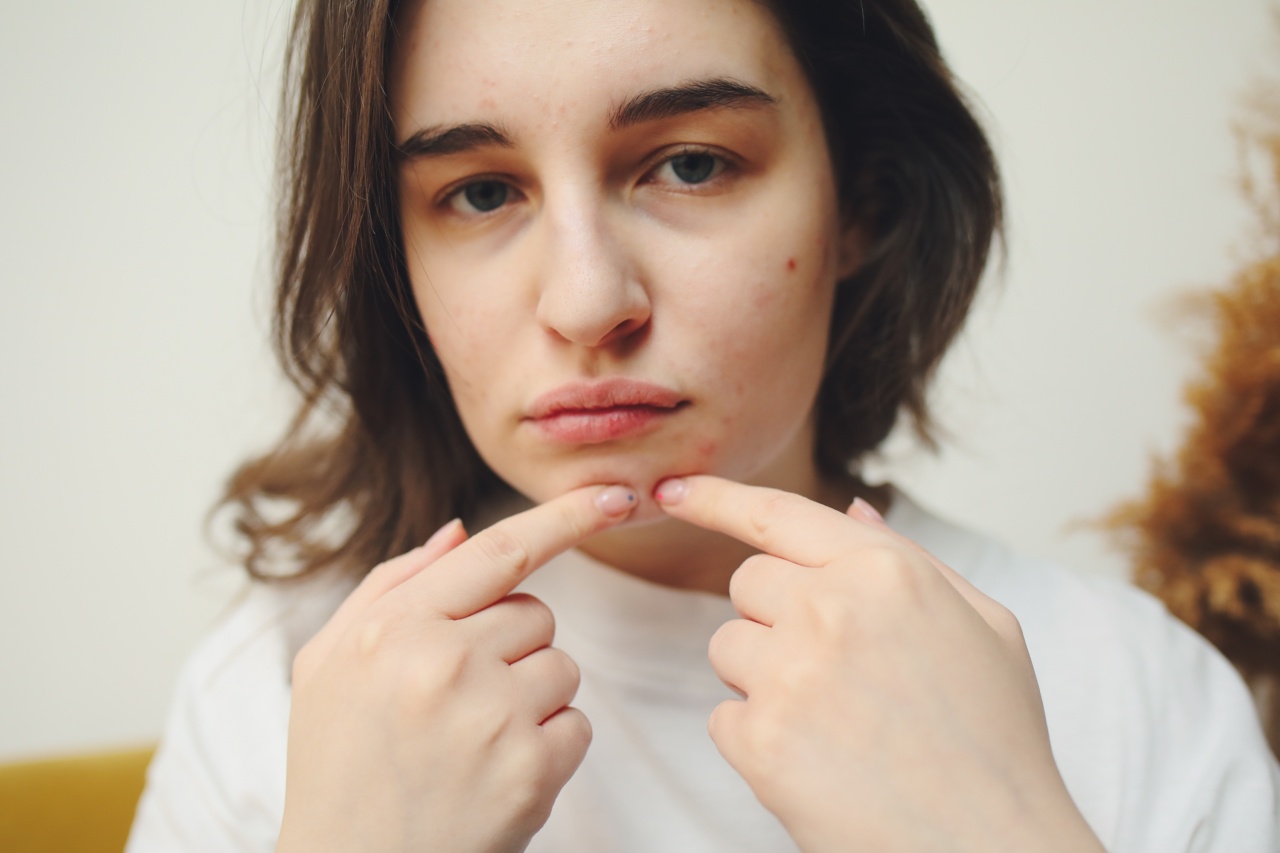Acne is a common skin condition that affects millions of people worldwide. It can cause emotional distress and impact one’s self-esteem.
The causes of acne are multifactorial, but one of the main factors that contribute to acne is endocrine dysfunction. In this article, we will explore why endocrine dysfunction causes pimples and acne.
What is Endocrine Dysfunction?
The endocrine system comprises glands that produce hormones that regulate various bodily functions. Endocrine dysfunction occurs when these glands produce too little or too much hormones, leading to an imbalance in the body’s system.
How Does Endocrine Dysfunction Cause Acne?
The skin has sebaceous glands that produce sebum, an oily substance that lubricates and protects the skin. Sebum production is regulated by androgens, male hormones that are present in both males and females.
Endocrine dysfunction can lead to an increase in androgen production, causing the sebaceous glands to produce more sebum than necessary. The excess sebum combines with dead skin cells and clogs the hair follicles, resulting in pimples and acne.
Types of Endocrine Dysfunction that Cause Acne
There are different types of endocrine dysfunction that can cause pimples and acne. Below are some of them:.
Polycystic Ovary Syndrome (PCOS)
PCOS is a hormonal disorder that affects women. It occurs when the ovaries produce too many androgens, leading to an imbalance in the body’s hormones. This imbalance can cause acne, hirsutism (excessive hair growth), and irregular periods.
Cushing’s Syndrome
Cushing’s syndrome occurs when the body produces too much cortisol, a hormone that helps the body deal with stress. The excess cortisol can cause acne, along with other symptoms such as weight gain, muscle weakness, and high blood pressure.
Thyroid Disorders
Thyroid disorders such as hypothyroidism and hyperthyroidism can cause acne. Hypothyroidism occurs when the thyroid gland produces too little thyroid hormones, while hyperthyroidism occurs when the thyroid gland produces too much thyroid hormones.
Both conditions can disrupt the body’s hormonal balance, leading to acne.
Treatment for Endocrine Dysfunction-Related Acne
The treatment for endocrine dysfunction-related acne involves addressing the underlying hormonal imbalance. Depending on the cause of the endocrine dysfunction, treatment options may include:.
Oral Contraceptives
Oral contraceptives can help regulate hormonal imbalances in women, especially in cases of PCOS. They contain hormones such as estrogen and progestin that can suppress androgen production and reduce sebum production.
Anti-Androgen Drugs
Anti-androgen drugs can also help regulate hormonal imbalances. They work by blocking the effects of androgens on the skin, reducing sebum production and preventing acne.
Corticosteroids
Corticosteroids are drugs that can suppress the immune system and reduce inflammation. They are used to treat conditions such as Cushing’s syndrome that cause acne.
Thyroid Hormone Replacement Therapy
For people with thyroid disorders, thyroid hormone replacement therapy can help regulate the body’s hormonal balance, reducing acne.
Preventing Endocrine Dysfunction-Related Acne
Preventing endocrine dysfunction-related acne involves maintaining a healthy lifestyle. Below are some tips:.
Eating a Healthy Diet
Eating a diet rich in fruits, vegetables, and whole grains can help regulate hormones in the body. Avoiding processed foods, sugary drinks, and foods high in saturated fats can also help.
Exercising Regularly
Exercising regularly can help regulate hormones and reduce stress levels, which can contribute to hormonal imbalances.
Managing Stress
Stress can cause hormonal imbalances, so managing stress levels is crucial. Engaging in activities such as meditation, yoga, and deep breathing exercises can help reduce stress levels.
Conclusion
Endocrine dysfunction is a common cause of pimples and acne. Understanding the types of endocrine dysfunction that can cause acne and the treatment options available is crucial in managing this condition.
Maintaining a healthy lifestyle can also help prevent endocrine dysfunction-related acne.






























